Ather Rizta Family Electric Scooter Flies Past 1 Lakh Sales
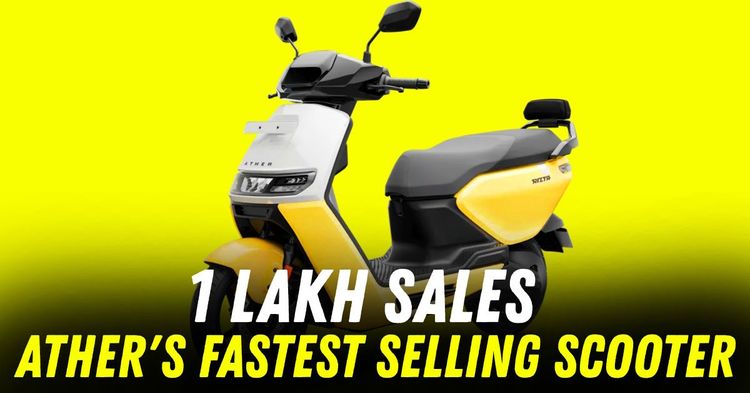

Ather Energy has quietly rewritten the electric two-wheeler playbook. In early May 2025, the Bengaluru-based EV startup’s Rizta scooter crossed 1 lakh in cumulative sales. It reached this mark in less than a year, offering a clear sign that a more measured, everyday approach to electric mobility is starting to resonate with buyers.
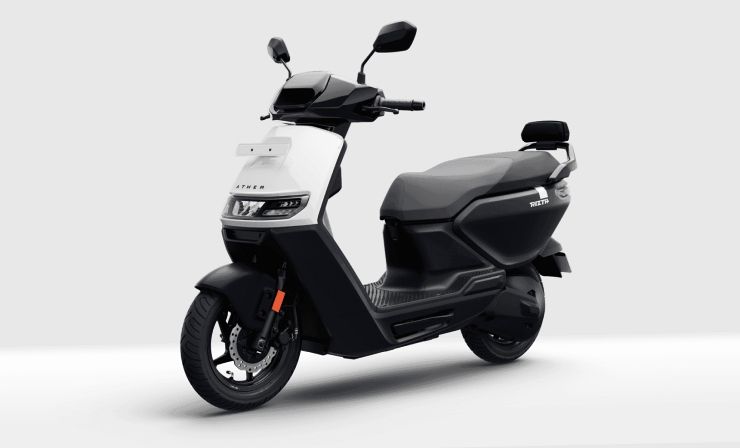
While many rivals focus on performance figures or headline-grabbing prices, Ather has taken a different route. The Rizta has found acceptance among Indian families looking for reliability, comfort, and practicality in their daily commute.
The Rizta is not a performance machine. It hasn’t been designed to break acceleration records or chase sporty aesthetics. Instead, it is purpose-built for family use, a shift from Ather’s earlier focus on tech-driven, youth-oriented scooters.
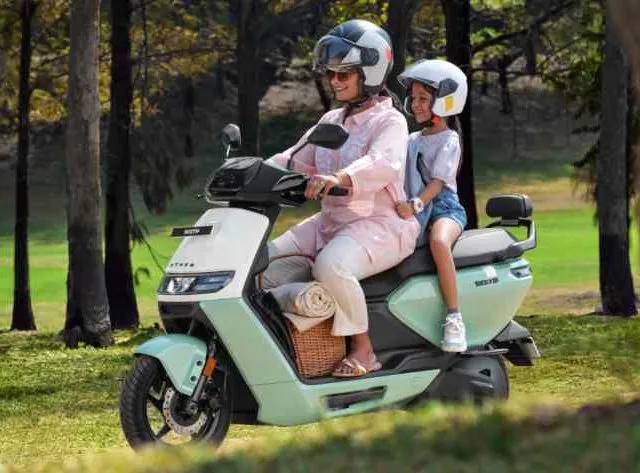
This reorientation shows in the scooter’s layout and features. The long, spacious seat and large under-seat storage make it a practical choice for everyday urban needs. The focus is on utility rather than flair, and that’s where the Rizta scores with its audience.
The numbers tell their own story. In FY2025, Ather recorded over 1.5 lakh units in annual sales, with the Rizta contributing nearly 58 percent to that figure. The company’s market share moved up from 11 percent in the third quarter to 15 percent in the fourth, largely on the back of this single model.
What stands out is how quickly the Rizta has become central to Ather’s growth story. Rather than betting on multiple models or aggressive pricing campaigns, the brand has focused on building one scooter that meets a wide range of day-to-day needs—and done so with quiet consistency.
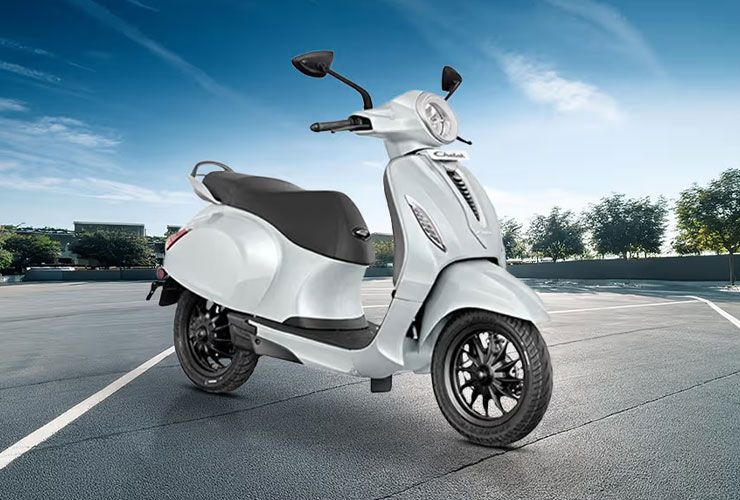
The electric two-wheeler space is evolving rapidly. Ola Electric, once the market leader, has seen its momentum slow. At the same time, traditional players like Bajaj and TVS have gained ground. TVS’s iQube has topped monthly sales charts in recent months, while Bajaj’s Chetak has reported strong growth.
In this shifting landscape, Ather has carved out a space for itself without trying to compete solely on price. The Rizta, with a starting price of ₹1.10 lakh, places itself in the premium-but-reasonable category. It competes with top variants of the iQube and Chetak by offering a balanced mix of useful features and dependable build quality.
The Rizta’s equipment list has been curated with urban riders in mind. Features like the ‘Magic Twist’ regenerative braking system provide a more intuitive experience in city traffic. The scooter also includes turn-by-turn navigation, smartphone integration, and a 7-inch touchscreen - all useful additions for everyday riders.
Safety features such as optional traction control and hill-hold assist aim to make the scooter more reassuring for families. The choices are less about showing off and more about reducing friction during use. That, perhaps, is what makes the Rizta feel better suited for regular commuters than many of its flashier rivals.
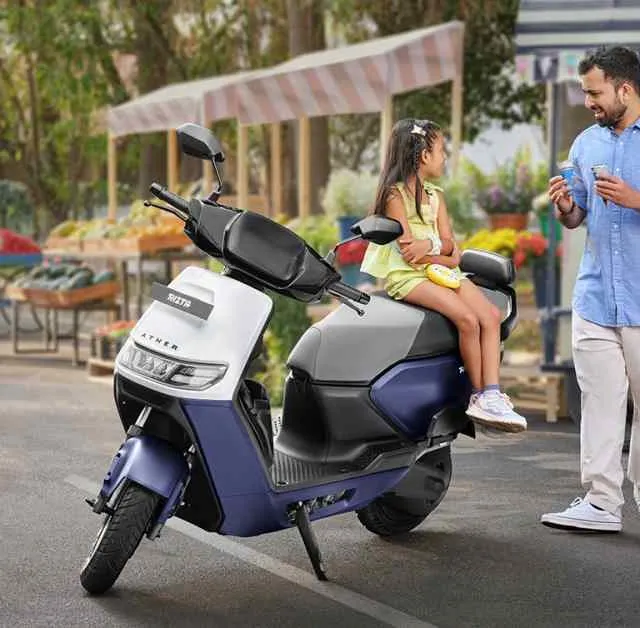
The Rizta’s success highlights a shift in how families are responding to electric mobility. With more charging infrastructure in place, growing environmental concerns, and supportive subsidies, the hesitation around EVs is slowly giving way to acceptance.
In this context, Ather’s approach has worked well. Rather than chasing extreme performance or trying to undercut rivals on cost, it has focused on product relevance. The Rizta meets the requirements of its target users and has delivered a consistent ownership experience. That is what appears to be driving repeat interest and long-term traction.
With a public listing just behind it, Ather now has a strong volume contributor in the Rizta. Its performance offers not just healthy sales but also a signal that electric scooters in India can succeed by addressing practical needs and building trust - one family at a time.